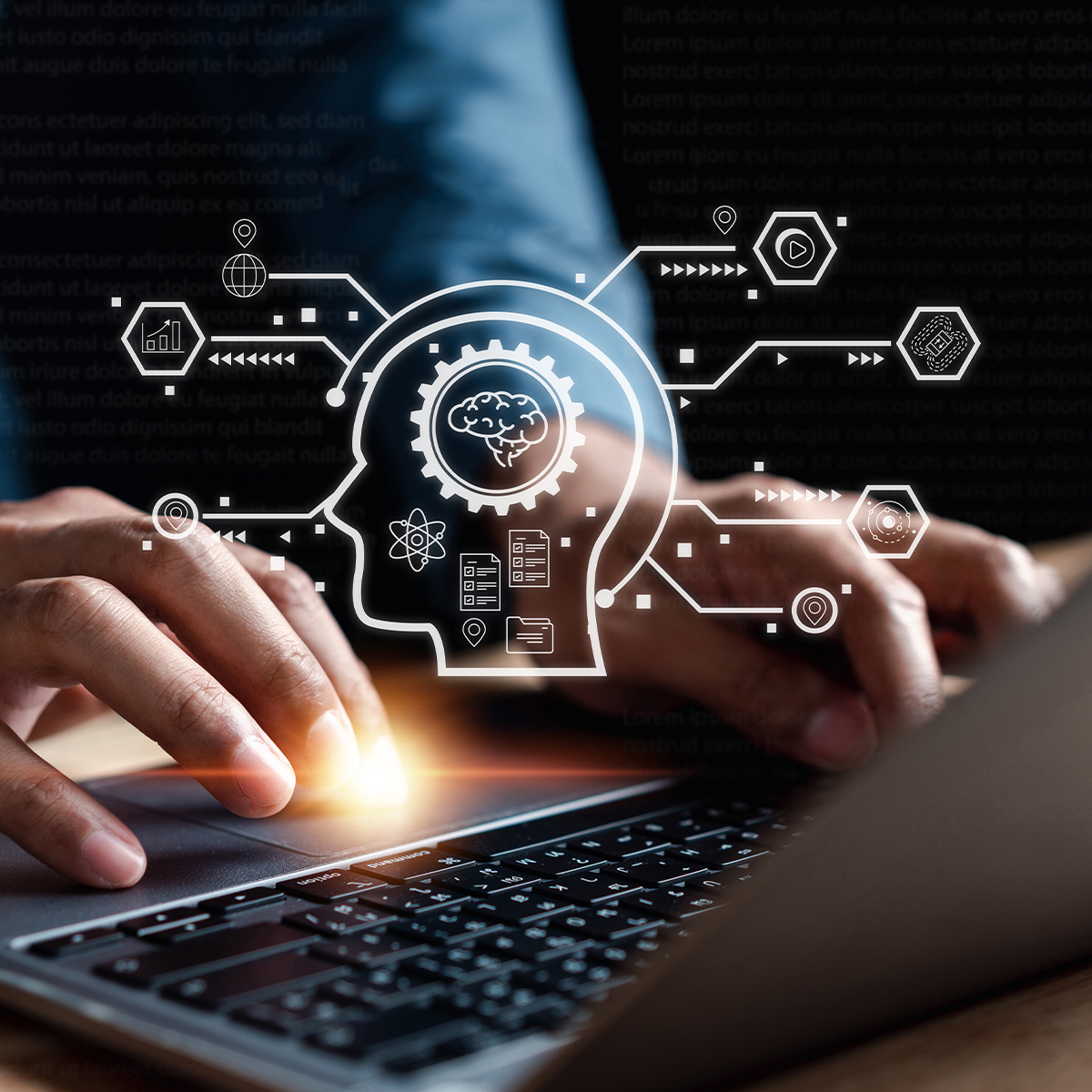-
Property & Casualty
Property & Casualty Overview

Property & Casualty
We offer a full range of reinsurance products and the expertise of our talented reinsurance team.
Expertise
Publication
High-Low Agreements Can Prevent Large Plaintiff Verdicts
Publication
Medical Marijuana and Workers’ Compensation
Publication
Secondary Peril Events Are Becoming “Primary.” How Should the Insurance Industry Respond?
Publication
Risks of Underinsurance in Property and Possible Regulation
Publication
Benefits of Generative Search: Unlocking Real-Time Knowledge Access
Publication
Battered Umbrella – A Market in Urgent Need of Fixing -
Life & Health
Life & Health Overview

Life & Health
We offer a full range of reinsurance products and the expertise of our talented reinsurance team.

Publication
Thinking Differently About Genetics and Insurance
Publication
Post-Acute Care: The Need for Integration
Publication
Trend Spotting on the Accelerated Underwriting Journey
Publication
Medicare Supplement Premium Rates – Looking to the Past and Planning for the Future U.S. Industry Events
U.S. Industry Events
Publication
The Future Impacts on Mortality [Video] -
Knowledge Center
Knowledge Center Overview

Knowledge Center
Our global experts share their insights on insurance industry topics.
Trending Topics -
About Us
About Us OverviewCorporate Information

Meet Gen Re
Gen Re delivers reinsurance solutions to the Life & Health and Property & Casualty insurance industries.
- Careers Careers
AI Is Here. What Does it Mean for the Insurance Industry?

August 10, 2023
Timothy Fletcher
English
With a potential disruption that some commentators suggest will ultimately rival the dawning of the atomic age in 1945, generative AI and ChatGPT burst upon the scene in late 2022.1 Headlines trumpeted the new technology’s ability to pass licensing exams, show professional competency in law school subjects such as taxation and torts, and predict with startling accuracy early indicators of life-threatening diseases. However, others told of a more ominous future in which generative AI would supplant human thought and pose an existential threat to our very existence.
Just as the atomic age has both benefitted and threatened humanity, so too will generative AI. But in what ways? And what are the ramifications for the insurance industry?
Let’s take a look.
Generative AI and ChatGPT Explained
Artificial Intelligence (AI) has a decades-long history, having served to enable the spotting of patterns and to make predictions through the assessment of massive data sets.2 More recent advancements have given rise to generative AI, a technology that can create words, images, and video that can closely resemble human activity.3 Generative AI buttresses chatbots such as ChatGPT and image generators such DALL‑E. These AI‑powered tools have engendered images, essays, and conversations that appear to have been created by humans.
A concept known as machine learning makes leaps like this possible, powered by mathematical systems called neural networks – a computerized brain – that help find connections in data.4
Dominating recent headlines and social media chatter have been Large Language Models, or LLMs. By voraciously consuming massive tomes of internet-housed text, LLMs “speak” by finding statistical relationships between words and then matching patterns to mimic human speech.
“[AI] can do amazing things … and when something can do all kinds of things, I get a little bit worried because I know we won’t be able to un‑invent it. … Einstein said after the atom bomb, …’This has changed everything in the world except how men think.’ And I would say the same thing … with AI, it can change everything in the world except how men think and behave. And that’s a big step to take.”
– Warren Buffett, May 2023 Berkshire Hathaway Shareholders Meeting
Societal Benefits
AI evangelists proclaim that the technology will change lives by essentially freeing up humanity to do things that software never will in areas such as teaching patient care and supporting the elderly.5 They also proclaim that AI will help scientists develop vaccines, teach students math, and serve as a personal and professional assistant by going through a person’s email inbox and scheduling meetings.6
Some of that is already coming true. Within 72 hours of OpenAI’s release of the first free version of ChatGPT, physicians began using it to help communicate with patients about medical recommendations and to help communicate empathy with respect to patient suffering.7 Millions are now experimenting with free standalone chatbots ChatGPT, Bing, and Bard.8 LLMs are available to summarize text, draft and explain copy, compose emails, and analyze spreadsheet data.9
Process Improvement and Greater Productivity
Early indicators reveal AI’s potential to unleash staggering productivity gains. Two M.I.T. doctoral students found that with ChatGPT, grant writers, data analysts, and human-resource professionals produced news releases, news reports, and emails in 37% less time, 10 minutes less on average, with superior results.10 Separately, Goldman Sachs predicts that AI could drive a 7% (or almost $7 trillion) increase in global GDP and boost productivity growth by 1.5 percentage points over a 10‑year period.11
Insurance-related applications quickly come to mind, allowing our industry to, at long last, move past the “data rich but information poor” paradigm by capitalizing on institutional unstructured data as well as on customer-supplied information contained in wearables, telematics, and sensors.12 Some predict that the first lines to feel the effect will be Personal and Small Business, as AI – supported by machine and deep learning – will reduce underwriting decisions to a few seconds.13 On the claims side, AI will be able to manage claims triage, generate repair estimates, detect potential fraud, and interact directly with the policyholder, in turn freeing up claims staff for complex matters.
Concerns
Some government officials, regulators and analysts have expressed alarm that AI’s use in hiring, promotions, succession planning, and layoffs could give rise to a rash of discrimination-related litigation fueled by allegations of algorithmic bias and/or inaccuracy.14 While the number of AI discrimination suits remains scant so far, observers note that the ever-inventive plaintiffs’ bar will tap into a ready-made framework to bring them.15
AI-generated job loss concerns many currently employed in the insurance industry. To that end, a recent survey found that 72% of respondents indicated AI will reduce the number of underwriters in the insurance industry, with 82% indicating technology in general would negatively impact the scope of their roles.16 History suggests that won’t be the case, as evidenced by the precedents that implantation of international fiber-optic cable didn’t wipe out one-fifth of U.S. jobs (as had been predicted two decades ago) and that self-driving trucks would eliminate the need for human drivers (as had been thought ten years ago).17
Regardless, societal concerns extend beyond job loss, with some expressing sentiment that generative AI is analogous to releasing something dangerous into the wild.18 One immediate concern is that generative AI will flood the internet with false photos, videos, and texts unrecognizable as false to the average person.19 Another concern is that future versions of the technology will threaten humanity because it often learns unexpected behavior from the data it analyzes, moves from generating code to actually running it, and then potentially brings to reality truly autonomous weapons and killer robots.20 And, above all else, apprehensions abound that bad actors will use AI for corrupt purposes to drive up social inflation, foment societal unrest, and escalate hacking and cyberattacks.21 Because of these concerns, some tech and governmental leaders are calling for regulation with diverging opinions as how to best do so.22
A Look Into the Future
AI’s integration into the insurance industry is in its infancy, with carriers and consultants taking their first steps into the AI‑infused future. Whether those tentative first steps turn into a full-fledged gallop remains to be seen. Either way, at the core of the insurance industry are human beings, and it is humans who will ultimately be responsible for underwriting, claims, and marketing decisions. With that in mind, AI should be seen as a potentially invaluable tool, and in large measure as an outgrowth of the industry’s use of probabilistic modeling to predict profitability, individual claim values, and loss portfolio performance.
What might an AI‑infused insurance industry look like? Here’s one possible scenario circa 2033:
Company X is a mid-sized Property and Casualty insurer that found itself whipsawed by climate change-influenced weather events, nagging inflation (social included), and the ongoing inability to recruit and retain talent increasingly being lost to retirements. Sensing that an existential threat loomed, company management embraced AI as part of an exhaustive strategic planning process begun in early 2024.
Planning, development, and implementation – at times painful – consumed the company over the next seven years. However, substantive results began appearing as the new decade dawned, with the company seeing premium growth and profitability. Longtime employees and company stakeholders, while pleased with the results, also find themselves marveling at the transformation, which seemed impossible a decade ago. They marvel at how AI identifies new markets and even develops the marketing plans to reach them. The intake of routine submissions, including nearly all of those in Personal lines, are supported by AI. Customer service has dramatically improved as well, with AI interacting with prospective policyholders through the company’s website, tailoring specific coverage options to individual needs. Speaking of coverages, AI now suggests modifications to policy wordings, based on loss history and adverse court decisions. The Claims Department is riding the AI wave as well, with the intake of routine property damage claims handled seamlessly by AI and chatbots, often with minimal human interaction. And for the more complex casualty claims, AI projects realistic outcomes as to both verdict result and settlement value by accessing the outcomes of similar prior cases and the demographics and viewpoints of potential jurors, as well as the reems of information about counsel representing the other side and the experts employed.
Additionally, employee recruitment concerns have abated. AI has identified a rich pool of non-traditional learners with a variety of backgrounds. Many are on their way to long and successful careers in the insurance industry.
Certain outcome or deluded fantasy? The reality most likely lies somewhere in between, of course. Regardless, the potential for earth-shattering change remains.
“The development of AI is as fundamental as the creation of the microprocessor, the personal computer, the Internet, and the mobile phone. Entire industries will reorient around it. Businesses will distinguish themselves by how well they use it.”
– Bill Gates, March 2023 GatesNotes Blog
Conclusion
While AI’s future remains uncharted, with myriad practical benefits and a few that may prove frightening, this much is certain: The wind behind AI’s sails is both powerful and lasting, bringing with it rapid and dramatic change. How and in which ways the insurance industry responds will largely shape its future, with those companies best able to harness AI’s potential also being the ones to reap the economic benefits it portends to bring.
- https://www.wired.com/story/last-word-ai-atom-bomb/
- https://www.washingtonpost.com/technology/2023/05/07/ai-beginners-guide/
- Ibid.
- Ibid.
- https://www.wsj.com/articles/bill-gates-says-artificial-intelligence-is-the-most-revolutionary-technology-in-decades-75fb8562
- Ibid.
- https://www.nytimes.com/2023/06/12/health/doctors-chatgpt-artificial-intelligence.html
- https://mashable.com/article/generative-ai-work-tools-microsoft-google-slack-zoom-grammarly
- Ibid.
- https://www.wsj.com/articles/the-robots-have-finally-come-for-my-job-34a69146
- https://www.goldmansachs.com/intelligence/pages/generative-ai-could-raise-global-gdp-by-7-percent.html
- https://www.pwc.com/us/en/industries/financial-services/library/future-of-insurance-2030.html
- https://www.mckinsey.com/industries/financial-services/our-insights/insurance-2030-the-impact-of-ai-on-the-future-of-insurance
- https://www.businessinsurance.com/article/20230712/NEWS06/912358421/Artificial-intelligence-poses-risk-to-HR-practices#:~:text=Artificial%20intelligence%20can%20be%20a,of%20inadvertent%20discrimination%2C%20experts%20warn
- Ibid.
- https://www.intelligentinsurer.com/news/80-of-underwriters-worry-ai-with-reshape-roles-32785
- https://www.wsj.com/articles/the-robots-have-finally-come-for-my-job-34a69146
- https://www.nytimes.com/2023/05/01/technology/ai-google-chatbot-engineer-quits-hinton.html
- Ibid.
- Ibid.
- https://core.verisk.com/Insights/Emerging-Issues/Articles/2023/June/Week-4/generative-ai-civil-unrest-social-inflation-cybersecurity
- https://hbr.org/2023/05/who-is-going-to-regulate-ai




